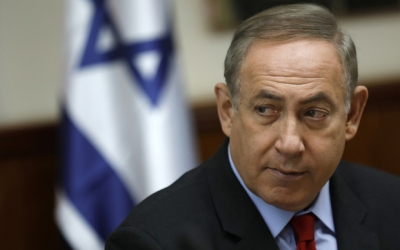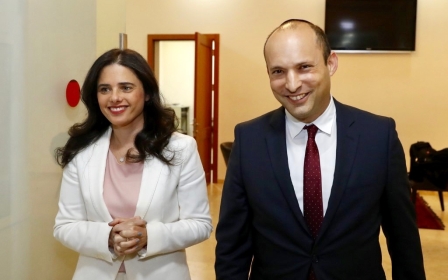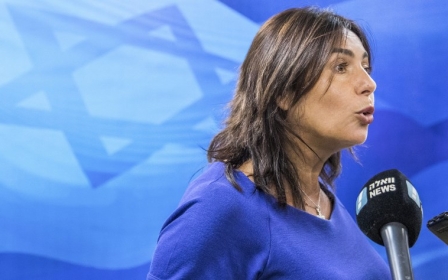Netanyahu appoints justice minister who supports his immunity from prosecution

Israeli Prime Minister Benjamin Netanyahu appointed Likud lawmaker Amir Ohana as justice minister on Wednesday in a move that could shield him from indictment on corruption charges.
Ohana, 43, the country's first ever gay minister, has backed the Nation State law that gives Jews supremacy over all non-Jewish Israeli citizens and has previously blamed Muslims for being “responsible for the acts of murder and massacre in the world over the past 50 years”.
New MEE newsletter: Jerusalem Dispatch
Sign up to get the latest insights and analysis on Israel-Palestine, alongside Turkey Unpacked and other MEE newsletters
Political sources told Haaretz that Ohana was appointed because he supports moves which would exempt Netanyahu from prosecution in three cases involving graft and breach of trust.
Ohana’s appointment comes days after Netanyahu sacked the former justice minister Ayelet Shaked, a right-wing rival who failed to win enough votes in the April elections to return to parliament.
Netanyahu failed to build a coalition after the April polls. Last week, Israeli lawmakers voted to dissolve parliament, paving the way for a new election in September.
'Rule of law gangs'
Born to Jewish immigrants from Morocco, Ohana is a lawyer by training and a former official in Israel’s internal security apparatus Shin Bet.
He is a backer of Netanyahu’s proposed bill that would allow Knesset and government ministers to annul any High Court decision to rescind Netanyahu’s immunity.
The bill would effectively turn the High Court's decisions into non-binding ones.
In an interview with 103 FM Radio last month, as quoted by Haaretz, Ohana said that "immunity laws are needed, especially in a legal world like ours, where there is an offense like breach of trust".
Ohana is known for his hostility towards the Israeli judicial system and its top officials who he once described as the "rule of law gang".
At a public event in Petach Tikvah last month, he decried the High Court as an obstacle to democracy.
"The sovereign is the public. They should make decisions through their elected representatives, because this is democracy ... If the High Court intervenes in everything, then why do we need elections?" he was quoted as saying.
In February, he said he expected the government to “draw red lines” for the High Court if its decisions are deemed harmful for the security of citizens.
Middle East Eye delivers independent and unrivalled coverage and analysis of the Middle East, North Africa and beyond. To learn more about republishing this content and the associated fees, please fill out this form. More about MEE can be found here.





